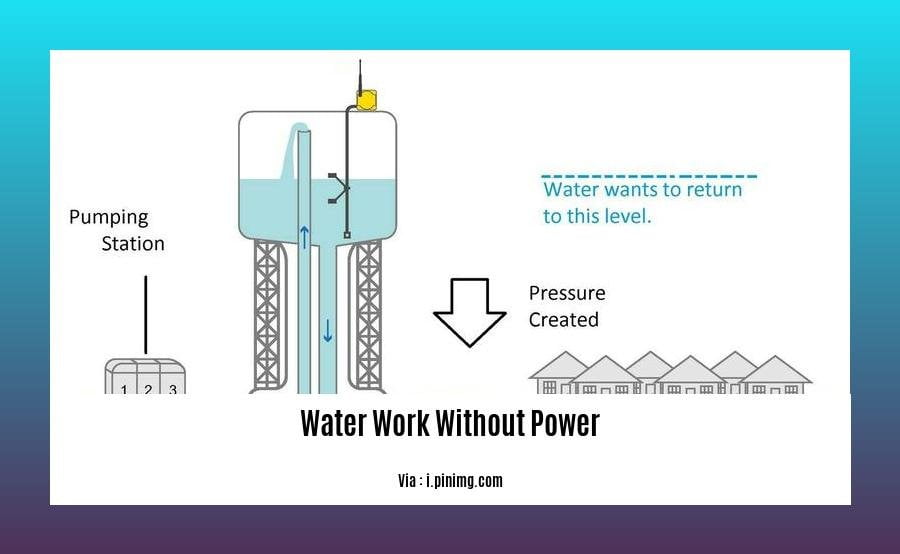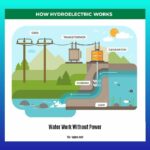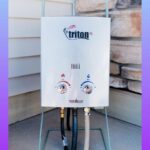Does Well Water Work Without Power? Exploring Sustainable Solutions for Off-Grid Communities
In off-grid communities, access to a reliable source of water is essential. However, what happens when the power goes out? Can well water still be accessed and used? These are crucial questions that need to be addressed, and in this article, we will delve into the topic of well water systems and explore sustainable solutions for off-grid communities. With a focus on ensuring access to well water even during power outages, we will discuss the intricacies of these systems and provide practical insights for maintaining water availability without relying on conventional power sources. Join us as we explore the possibilities of well water systems in off-grid communities and how sustainable practices can play a vital role in maximizing efficiency and conservation.
Key Takeaways:
- To obtain water from a well without power, several options are available.
- Using a backup generator is one effective method to ensure a consistent water supply during power outages or extreme weather conditions.
- Solar-powered pumps utilize solar panels to generate electricity and power the pump, providing a significant amount of water.
- Wind-powered pumps are a cost-effective and sustainable option, functioning even in low-wind conditions.
- Old-fashioned hand-operated pumps and well or sleeve buckets can be manually operated to extract water from the well.
- High lifters or hydraulic ram pumps utilize water pressure to pump water without the need for electricity.
- In emergency situations, a simple PVC pipe pump can be quickly assembled to extract water from a well.
- Factors such as availability and reliability of electricity, personal preferences, and individual circumstances may influence the choice of water extraction method.
Does Well Water Work Without Power? Exploring Sustainable Solutions for Off-Grid Communities
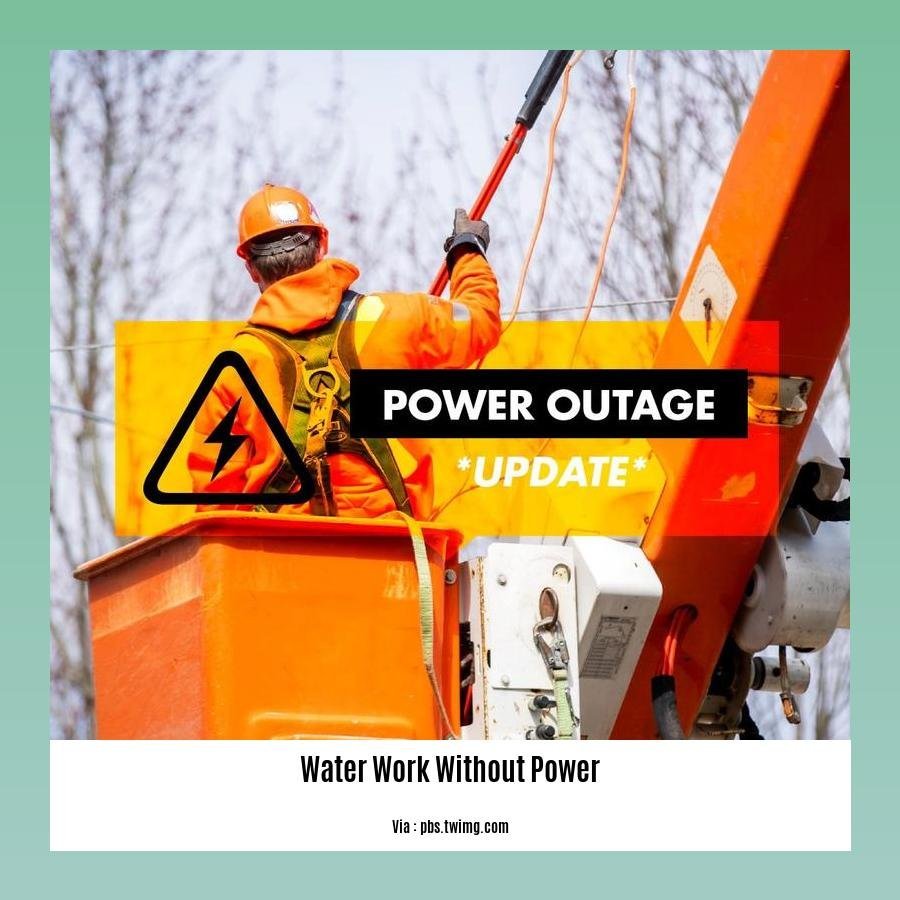
Well water is an essential and often reliable source of clean water for many off-grid communities. However, when the power goes out, accessing water from a well can become challenging. In this article, we will explore various sustainable solutions that allow well water to work without power, ensuring a continuous water supply even in the absence of electricity.
1. Backup Generator: A Reliable Power Source
One of the most effective ways to ensure a consistent water supply during power outages is by using a backup generator. With a backup generator, you can power your electric pump and maintain access to water regardless of power disruptions. While not every household has a backup generator, it is a worthwhile investment for those in off-grid communities where continuous water availability is crucial.
Source 1: How To Get Water From A Well Without Electricity
2. Solar Pump: Harnessing the Power of the Sun
Utilizing solar energy to power a pump is a sustainable and increasingly popular solution for off-grid well water systems. Solar-powered pumps employ solar panels to generate electricity, which in turn powers the pump. With the ability to reach depths of up to 800 feet, solar pumps can provide a significant amount of water, often up to 1,200 gallons per day. This environmentally friendly option relies on the sun’s energy, making it highly reliable and cost-effective in the long run.
Source 2: The 5 Best Ways To Get Well Water Without Electricity
3. Wind-Powered Pump: A Sustainable Approach
For off-grid communities located in windy areas, wind-powered pumps offer a cost-effective and sustainable solution. These pumps require minimal electricity and can still function even in low-wind conditions. By harnessing the power of the wind, they provide a reliable and resilient method of extracting water from a well. If your location is suitable, a wind-powered pump could be an ideal option to ensure water access without relying on traditional power sources.
4. Hand Pump: Simplicity and Reliability
If you prefer a more traditional approach, an old-fashioned hand pump is a reliable option for well water extraction. These pumps require manual operation, with the pumping action drawing water up from the well. While manual labor is involved, hand pumps offer simplicity and dependability. With proper maintenance, they can provide a consistent water supply, making them a popular choice in off-grid communities.
5. Well or Sleeve Bucket: Back to Basics
Another manual option is to use a well or sleeve bucket system. By lowering a bucket attached to a rope into the well, water can be manually retrieved and raised to the surface. While this method may require physical effort, it is a straightforward and efficient way to access well water without electricity. For those seeking a low-tech, low-cost solution, a well or sleeve bucket can be a practical choice.
6. High Lifter or Hydraulic Ram Pump: Harnessing Water Pressure
A high lifter or hydraulic ram pump is a unique solution that utilizes water pressure to pump water without electricity. The hydraulic ram pump harnesses the energy from falling water to create pressure, forcing water up from the well. This ingenious system eliminates the need for electricity, making it a sustainable and reliable option for off-grid communities.
7. Emergency PVC Pipe Pump: A Temporary Solution
In emergency situations, a simple and quick solution can be a makeshift pump crafted from PVC pipes and fittings. By assembling a basic pump mechanism, water can be extracted from a well without the need for electricity. While this solution may not be a long-term option, it can provide temporary access to well water during power outages or other emergency scenarios.
It is important to remember that the availability and reliability of electricity, along with individual circumstances and preferences, can influence the choice of water extraction method. Each of these sustainable solutions offers a unique approach to ensure well water works without power, providing off-grid communities with a continuous and reliable water supply.
In Conclusion: Diverse Solutions for Well Water Access Without Power
While power outages can disrupt access to well water in off-grid communities, there are multiple sustainable solutions available. Whether it’s utilizing backup generators, harnessing solar or wind power, relying on manual pumps, or employing innovative hydraulic ram pumps, each method offers a reliable approach to access well water without relying on traditional power sources. By exploring these diverse solutions, off-grid communities can ensure the availability of well water even during power outages, fostering resilience and sustainability in water systems.
Sources:
– How To Get Water From A Well Without Electricity
– The 5 Best Ways To Get Well Water Without Electricity
Does power outage affect water heater? Find out how power outages can impact your water heater and learn more at ../does-power-outage-affect-water-heater.
Curious about whether your water heater can work without power? Discover the answer and explore more about water heater functionality during power outages at ../does-water-heater-work-without-power.
Worried about accessing water during power outages? Learn if water can still work without power and find additional information at ../does-water-work-without-power.
Operation of a Well Water System During a Power Outage
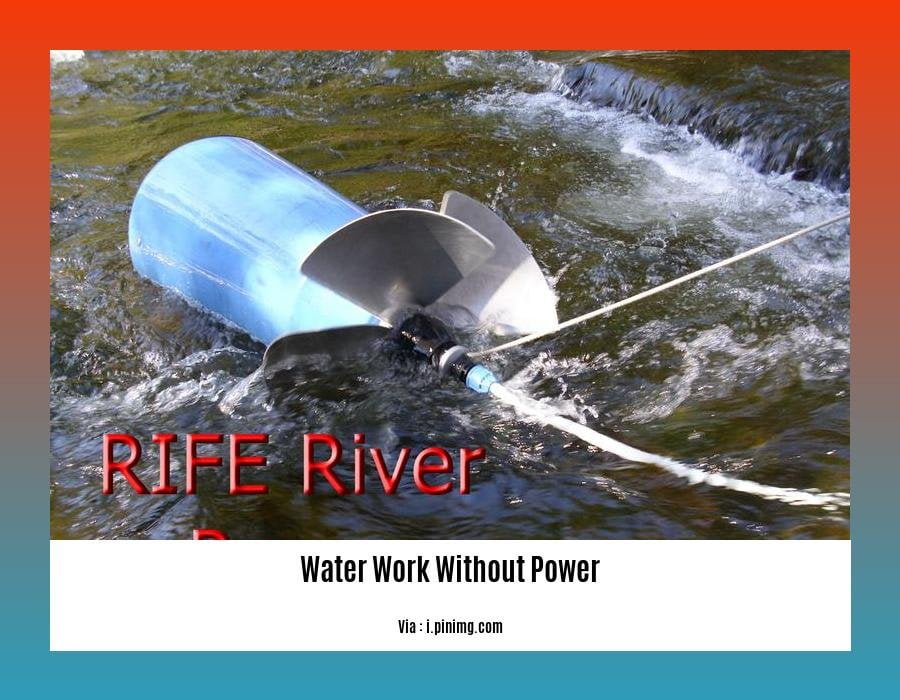
When a power outage occurs, it can disrupt many aspects of our daily lives, including access to water. For homeowners who rely on a well water system, understanding how it operates during such an event is essential. In this article, we will explore the operation of a well water system during a power outage, including potential risks and precautions to consider.
During a power outage, most well water systems that operate on electric energy will not be able to provide running water until the power is restored. This is because these systems rely on electricity to power their pumps, which are responsible for drawing water from the well and delivering it to the faucets and fixtures in your home[^1^]. Therefore, it’s important to be prepared for the possibility of a temporary loss of running water during a power outage.
To ensure the safety of your well water during and after a power outage, it’s crucial to take certain precautions. One key measure is to refrain from using faucets, taking showers, or flushing toilets during a prolonged power outage. This is because opening faucets during an outage can lead to a loss of pressure in the well system, potentially allowing contaminants to enter the water supply[^2^]. By avoiding unnecessary water usage, you can help maintain the integrity of your well water.
Another proactive step to mitigate the risks associated with using well water during a power outage is to test your well water beforehand. By conducting a water quality test, you can assess the safety and quality of your well water and address any issues that may be present before an outage occurs[^3^]. This will enable you to take necessary measures, such as installing water treatment systems or addressing any contamination concerns.
It’s also important to recognize that the duration of a power outage can vary significantly. While some outages may only last a few hours, others can stretch on for several days or even weeks[^4^]. With this in mind, conserving water becomes crucial during an outage to ensure that the available water supply lasts until the power is restored. By being mindful of your water usage and implementing water-saving practices, you can make the most of the water you have.
For Canadians seeking more information on well water safety during a power outage, the official website of Health Canada provides detailed guidance[^5^]. This resource offers valuable insights into ensuring the safety of well water during and after an outage, along with specific recommendations for homeowners.
In conclusion, while it is possible to use well water during a power outage, it’s important to understand the limitations and potential risks involved. By taking proactive steps such as testing your well water, conserving water, and refraining from unnecessary usage, you can help ensure the safety and availability of well water during a power outage. By being prepared and informed, you can continue to rely on your well water system even in challenging circumstances.
Key Takeaways:
- Well water systems that rely on electricity may not provide running water during a power outage.
- Opening faucets during an outage can lead to a loss of pressure and potential contamination.
- Testing well water before an outage allows for addressing any issues beforehand.
- Power outages can vary in duration, requiring water conservation measures.
- Health Canada’s website offers guidance on well water safety during and after an outage.
Sources:
[^1^]: Water Filterer: Does Well Water Work During a Power Outage?
[^2^]: Government of Canada: Be Well Aware: Ensure your well water is safe during and after a power outage
[^3^]: Clean Water Store: How Do Home Well Water Pump and Pressure Systems Work?
[^4^]: Government of Canada: Be Well Aware: Ensure your well water is safe during and after a power outage
[^5^]: Government of Canada: Be Well Aware: Ensure your well water is safe during and after a power outage
Alternatives to Power for Operating a Well Water System
Key Takeaways:
– Solar pumps, wind-powered pumps, hand pumps, suction pumps, and gravity-fed systems are reliable alternatives to power for operating a well water system.
– Accessing well water without electricity is essential during a power outage or in areas with intermittent or unreliable power supply.
– Each method offers a unique approach to ensure well water works without power, depending on factors such as well depth and location.
– It’s important to consider the availability and reliability of electricity, as well as individual circumstances and preferences, when choosing a water extraction method.
Accessing well water without electricity is crucial in situations where power supply is limited or during power outages. Fortunately, there are several alternatives available that allow for reliable and sustainable access to well water even without power. Let’s explore some of the most effective methods:
1. Solar Pumps: Solar-powered pumps are an excellent option for operating a well water system without electricity. These pumps utilize solar panels to convert sunlight into energy, powering the pump and extracting water from the well. They are especially effective in areas with abundant sunlight.
2. Wind-Powered Pumps: Similar to solar pumps, wind-powered pumps provide an alternative option for operating a well water system without electricity. These pumps harness the power of the wind to generate energy and operate the pump, allowing water to be extracted from the well. They are particularly suitable for areas with consistent wind patterns.
3. Hand Pumps: Hand pumps are considered the best option for operating a well water system without electricity, especially in situations where reliability and sustainability are crucial. They can be easily installed alongside electrical submersible pumps, providing a seamless switch between the two. Hand pumps are particularly effective for shallow wells and can draw water from depths of 25 feet or less without exerting excessive muscle fatigue.
4. Suction Pumps: Suction pumps offer another method for operating a well water system without electricity. These pumps rely on suction created by manual force or a motorized device to extract water from the well. However, their effectiveness may vary depending on the depth of the well and the power of the suction mechanism used.
5. Gravity-Fed Systems: Gravity-fed systems provide a reliable method for operating a well water system without electricity. These systems involve setting up a series of pipes or channels that allow water to flow downhill from a water source, such as a reservoir or elevated tank, to the well. The force of gravity propels the water through the system, creating water pressure that extracts water from the well.
Backup power sources, such as generators, can also be utilized for deep well pumps to ensure a consistent water supply even during prolonged power outages. However, it’s important to consider the availability of fuel and maintenance requirements for these generators.
In conclusion, accessing well water without electricity is possible through various alternatives. Solar pumps, wind-powered pumps, hand pumps, suction pumps, and gravity-fed systems offer reliable and sustainable solutions. The choice of method depends on factors such as well depth, location, and individual circumstances. By utilizing these alternatives, off-grid communities can ensure a continuous and reliable water supply, fostering resilience and sustainability in their water systems.
Sources:
– Savvy Survivor – Off-Grid Water: Accessing Well Water Without Electricity
– Drinking Water – How to Pump Water From a Well Without Electricity
Tips for Ensuring Well Water Availability During Power Outages
During a power outage, accessing well water can be a challenge. However, there are several methods you can use to ensure a reliable water supply even without electricity. Here are some tips:
Hand pumps
Installing a hand pump alongside your existing well pump can provide a manual method for drawing water from your well during a power outage. Hand pumps are effective for both shallow and deep well systems. [^1^]
Solar pumps
Consider using solar-powered pumps to access well water without electricity. These pumps utilize solar energy to pump water from your well, providing a reliable solution during power outages. [^2^]
Wind turbines
If you have a wind turbine on your property, it can be used to pump water from your well. This is a sustainable and eco-friendly option for accessing well water during a power outage. [^2^]
Well or sleeve buckets
In the absence of a pump, you can use a well or sleeve bucket to manually draw water from your well. This method may require more physical effort but can be effective during emergencies.
Generators
Using a generator can power your well pump and provide a continuous water supply during a power outage. It’s important to have a reliable generator and enough fuel to keep it running. [^5^]
Key Takeaways:
– Installing a hand pump, solar pump, or wind turbine can provide alternative methods for accessing well water during power outages.
– Using well or sleeve buckets can be effective as a manual alternative in emergencies.
– Generators can power well pumps and ensure a continuous water supply during power outages.
– Collecting rainwater and storing water from indoor plumbing can also help provide a backup water supply during power outages.
Please note that the information provided in this article is for informational purposes only. It is recommended to consult a professional or well contractor for proper maintenance and installation of well systems.
Source 1
Source 2
FAQ
Q1: Can I still access well water during a power outage?
A1: Yes, there are several methods available to access well water without electricity, such as using hand pumps, solar pumps, wind turbines, or well and sleeve buckets.
Q2: Are hand pumps a reliable option for accessing well water during a power outage?
A2: Yes, hand pumps are considered a reliable option for accessing well water without electricity. They can be easily installed alongside existing well pumps and are effective for both shallow and deep well systems.
Q3: How do solar pumps work for accessing well water during a power outage?
A3: Solar pumps utilize solar panels to convert sunlight into energy, which powers the pump and extracts water from the well. They are particularly effective in areas with ample sunlight.
Q4: Can wind turbines be used to access well water during a power outage?
A4: Yes, wind turbines can be used to pump water from a well during a power outage. They harness the power of the wind to generate energy, which operates the pump and extracts water from the well.
Q5: What other alternative methods can be used to access water during a power outage?
A5: Aside from utilizing well water, other alternative methods include collecting rainwater in barrels or containers, as well as filling buckets and bathtubs with water from indoor plumbing before the power outage occurs. These stored water sources can be used for essential needs.
- Crypto Quotes’ Red Flags: Avoid Costly Mistakes - June 30, 2025
- Unlock Inspirational Crypto Quotes: Future Predictions - June 30, 2025
- Famous Bitcoin Quotes: A Deep Dive into Crypto’s History - June 30, 2025
